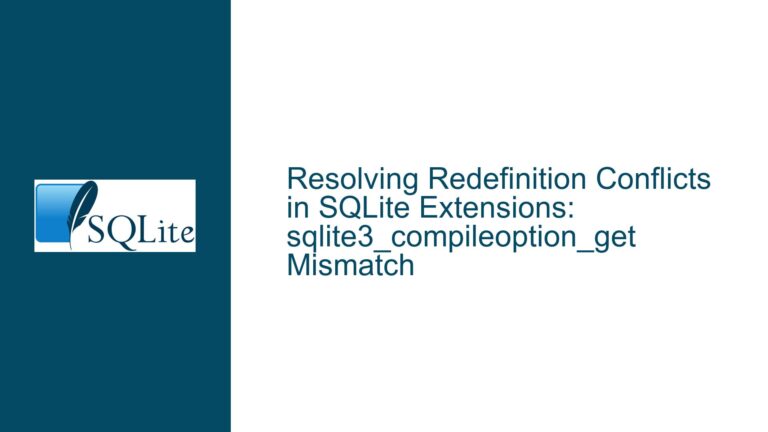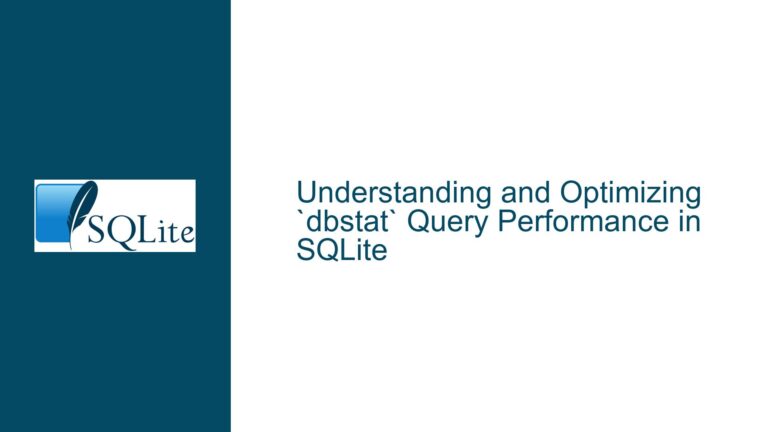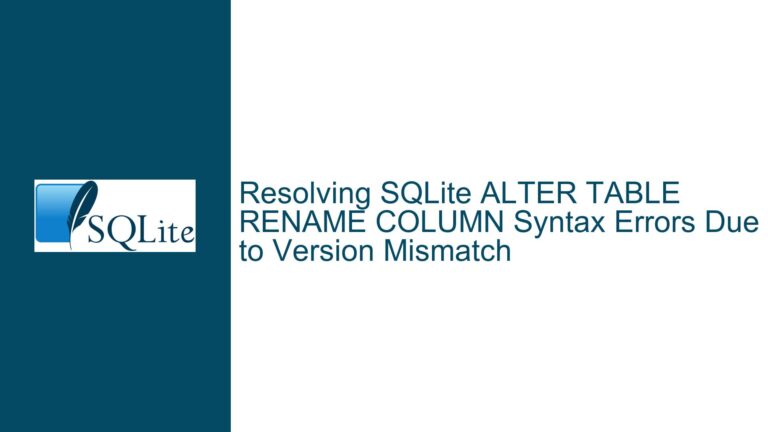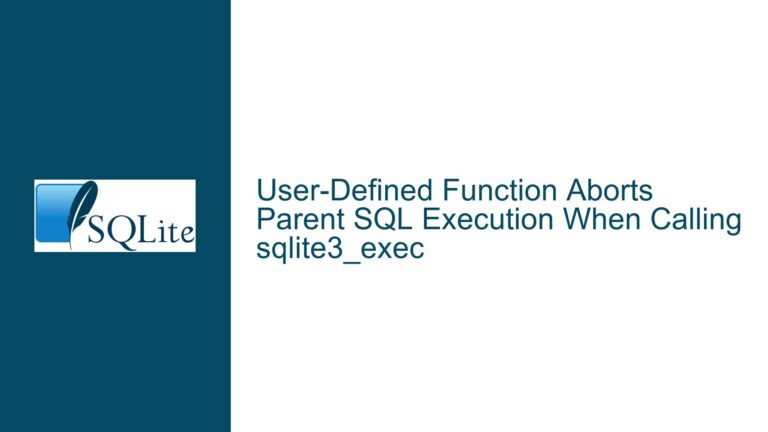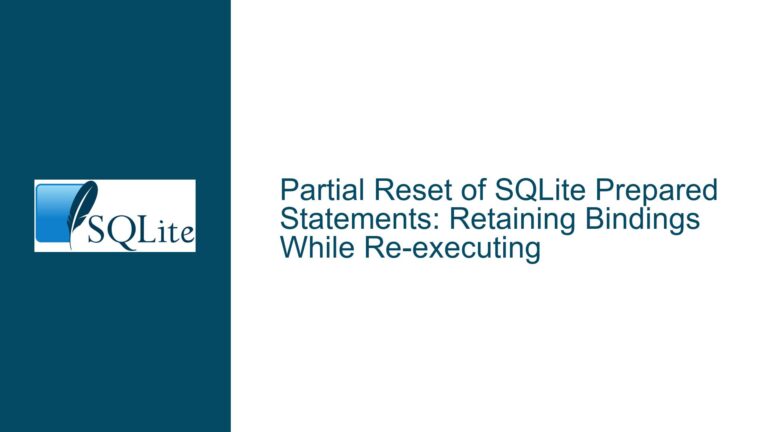Unexpected Empty Result in Complex Join and Subquery SQLite Query
Issue Overview: Complex Multi-Table Join with Subqueries Yields Contradictory Filtered Results The core issue revolves around a SQLite query involving multiple joins (INNER JOIN, RIGHT JOIN), subqueries, and a view definition that produces contradictory results when an additional WHERE clause is applied. The first query returns a row with t1.c0 = 1, while the second…

